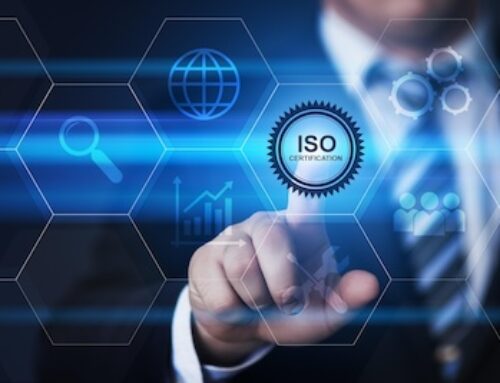By Gene Russell, Manex President & CEO
The International Organization for Standardization (ISO) is an independent, non-governmental organization, the members of which are the standards organizations of the 162-member countries. It is the world’s largest developer of voluntary international standards and facilitates world trade by providing common standards between nations. Over twenty thousand quality management standards have been set covering everything from manufactured products and technology to food safety, agriculture and healthcare. The standard can be used by any organization, regardless of size or type.
ISO 9001:2015 sets out the requirements for a quality management system. It helps businesses and organizations be more efficient and improve customer satisfaction. If your organization is downstream to a large client, you may be required to obtain ISO certification by the client. Implementing ISO does not require certification. Nor does it require outside assistance to implement. Many Manex manufacturers obtain ISO certifications in order to gain new business rather than comply with existing business. Often, ISO certifications are framed in the company lobby, appear on websites, brochures and other material. The obvious message is “we have a quality management system” and we can meet your quality needs.
The concepts behind ISO 9001-2015 are quite simple. Although first published in 1987, ISO 9001 has been regularly updated to coincide with modern business principles and requirements. The current ISO 9001:2015 version puts a stronger focus on stakeholders and has a broader focus on the entire organization. ISO 9001:2015 does not set a specific quality standard or define what meeting needs means. Your organization must define these objectives and then use the concept of “continuous improvement” to reach them.
Manex and our community of manufacturers often think that ISO is just for manufacturing but is in fact used by a much broader base of businesses, including service providers such as banks, hospitals, and universities. In fact, just think of how critical outcomes are in a surgical operating room or a bank managing millions, sometimes billions of dollars.
What is your ROI for implementing and maintaining an ISO quality management system? ISO 9001 can increase productivity and efficiency lowering both your cost of goods and cost of your support and service organization. ISO can enhance your customer experience and enhancing that experience should mean repeat business. Many Manex clients experience a yearly increasing flow of new RFQ’s based on improved quality standards and the ability to deliver on time. Performance does matter. It is the best sales strategy. Getting the certification enhances your reputation with all potential customers from early-stage tech companies to large global organizations.
Internally, ISO allows you to clearly state your objectives and identify new business opportunities with your team. Although we tend to think we always put the customer first, that can easily fall by the wayside without a quality management system. Because ISO is company-wide and not just in one department, it provides a good way to align your production, engineering, sales and admin teams, and have them understand the business better. In the end, these elements also bring costs down. More importantly, for some owners and C-levels it reduces the day-to-day hassles of the business and makes life easier on the job.
From a risk standpoint, the ISO 9001:2015 system is a good tool to ameliorate defects, rejects, returns, inventory overstocks, and poor supplier supply card ratings.
A consultant can be hired to provide a preliminary survey or assessment. The consultant could then provide training, implementation, and internal audits. Consultants should provide the subject matter expertise, training, coaching and follow-through to ensure success.
Some things you want to see in a consultant are:
- Successful consulting in ISO
- Resources within the consulting firm
- Impartiality regarding certification bodies
- Confidentiality
- References or published case studies
- Credentials
- Fit and style to your organization
- Established ethical reputation
- Large enough to carry all forms of business insurance
- Understandable and plain-spoken engagement agreements with agreed-upon timeframes and outcomes
- Independent client surveys
An ISO implementation with a consulting firm is no different than other projects with consulting firms. You should be all in on the project to maximize your ROI spend on it. The quality management system guidance and ISO in particular should be easily understood by leadership and process owners. Process owners and leadership will work most closely with the consultant. The consultant does not own the outcomes. You own the outcomes and that ownership is key to a successful project and the ongoing management of your ISO in your company. Note: I use ISO and Quality Management System in this blog interchangeably. Once the consultant is done, you will be the one to manage the system on an ongoing basis. Suffice it to say that we do many, many ISO projects every year and have since our inception 25 years ago. We bank on our long history and relationships with NIST MEP and CMTC because that framework provides you with a solid backing and great outcomes.
Finally, I would like to point out that ISO is an international standard. Like Manex, the International Organization for Standardization (ISO) is a non-profit. ISO is headquartered in Geneva, Switzerland and is a valuable resource for learning about ISO (iso.org).
Gene Russell is President and CEO of Manex and has over 30 years of senior executive strategic planning, operational management, and consulting experience in the manufacturing and technology sectors. With his extensive knowledge of manufacturing operations, he has developed and implemented key strategic initiatives for companies, allowing them to improve performance and achieve profitable growth. He can be reached at grussell@manexconsulting.com.


